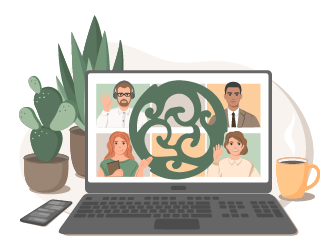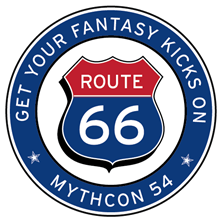Loading...
Document Type
Paper
Event Website
http://www.mythsoc.org/mythcon/mythcon-51.htm
Start Date
1-8-2021 2:00 PM
End Date
1-8-2021 2:45 PM
Description
In this presentation I explore why Tolkien singled out for particular appreciation the Brothers Grimm fairy tale The Juniper Tree, which Tatar (Annotated Grimm 209) has called “the most shocking of all fairy tales.” In On Fairy-Stories, Tolkien described its effect on him as follows: “The beauty and horror of The Juniper Tree…with its exquisite and tragic beginning, the abominable cannibal stew, the gruesome bones, the gay and vengeful bird-spirit coming out of a mist that rose from the tree, has remained with me since childhood; and yet always the chief flavor of that tale lingering in the memory was not beauty or horror, but distance and a great abyss of time... Without the stew and the bones … that vision would largely have been lost …Such stories… open a door on Other Time, and if we pass through, though only for a moment, we stand outside our own time, outside Time itself, maybe” (OFS 56). Tolkien is saying that his main response to The Juniper Tree was an experience of enchantment rather than horror, but that horror was a necessary element in producing this enchantment. By thinking about why Tolkien focused on the cannibalism (My Father He Ate Me) rather than the murder (My Mother She Killed Me) in this fairy tale, and investigating anthropological and psychological understandings of cannibalism, I will develop the idea that Tolkien’s appreciation of this fairy tale stemmed from his experience of enchantment tangling at its edges with horror and the uncanny. In his response to The Juniper Tree, like in much of his legendarium, Tolkien situated himself at a complex, ambiguous balance point between communion and alienation, between joy and loss.
Tech Mod: Jessica Dickinson Goodman.
Creative Commons License

This work is licensed under a Creative Commons Attribution-NonCommercial-No Derivative Works 4.0 International License.
Included in
My Mother She Killed Me, My Father He Ate Me.
In this presentation I explore why Tolkien singled out for particular appreciation the Brothers Grimm fairy tale The Juniper Tree, which Tatar (Annotated Grimm 209) has called “the most shocking of all fairy tales.” In On Fairy-Stories, Tolkien described its effect on him as follows: “The beauty and horror of The Juniper Tree…with its exquisite and tragic beginning, the abominable cannibal stew, the gruesome bones, the gay and vengeful bird-spirit coming out of a mist that rose from the tree, has remained with me since childhood; and yet always the chief flavor of that tale lingering in the memory was not beauty or horror, but distance and a great abyss of time... Without the stew and the bones … that vision would largely have been lost …Such stories… open a door on Other Time, and if we pass through, though only for a moment, we stand outside our own time, outside Time itself, maybe” (OFS 56). Tolkien is saying that his main response to The Juniper Tree was an experience of enchantment rather than horror, but that horror was a necessary element in producing this enchantment. By thinking about why Tolkien focused on the cannibalism (My Father He Ate Me) rather than the murder (My Mother She Killed Me) in this fairy tale, and investigating anthropological and psychological understandings of cannibalism, I will develop the idea that Tolkien’s appreciation of this fairy tale stemmed from his experience of enchantment tangling at its edges with horror and the uncanny. In his response to The Juniper Tree, like in much of his legendarium, Tolkien situated himself at a complex, ambiguous balance point between communion and alienation, between joy and loss.
Tech Mod: Jessica Dickinson Goodman.
https://dc.swosu.edu/mythcon/mc51/schedule/33



Comments
Recorded Session